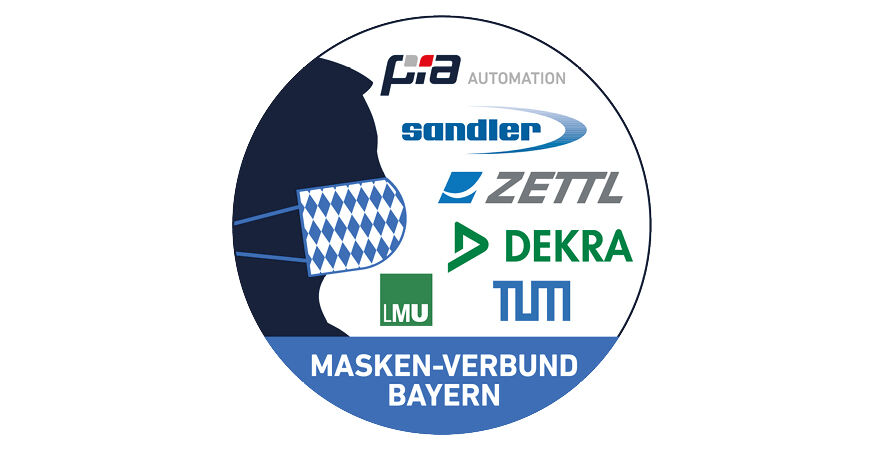New partners advance the alliance

High quality and effectiveness of protective masks, particularly those for medical personnel, are indispensable prerequisites to provide protection from new infections and thereby contribute to containing the corona pandemic.
In May 2020, three key companies of the industry joined together in the Mask-Alliance Bavaria: Sandler Group, high-tech producer of nonwovens from Schwarzenbach/Saale, PIA Automation, automation specialist from Amberg, and Zettl Group, leading supplier of products for automotive interiors from Weng. From base material, to machinery, to the production of the finished product, they set up an entire value chain for the manufacture of face masks in Bavaria. The overriding objective of the alliance is to ensure increased safety and quality standards and security of supply for personal protective equipment in the country even beyond the corona pandemic. A dependence on foreign suppliers should be avoided in future. Moreover, sustainable product solutions and maximum recyclability are focal topics.
With a view to increasing effectiveness, safety, usability, as well as the sustainability of face masks new materials and procedures are continuously being tried and tested. In order to further advance this development new partners want to join the Mask-Alliance Bavaria.
Professor Clarissa Prazeres da Costa, infectiologist, senior physician for medical microbiology and infection epidemiology, and co-director of the Center of Global Health of the Technical University of Munich (TUM), and her colleague Magnus Fröhling, professor for Circular Economy at TUM, as well as professor Franz-Xaver Reichl, microbiologist, pharmacologist and toxicologist, of Ludwig-Maximilians-University Munich (LMU), and product safety experts from the team of Jörg-Timm Kilisch of the German organization DEKRA, want to contribute their comprehensive know-how to the development of new medical masks.
Bayern Innovativ (Bavaria innovative), an organisation that facilitates innovation and knowledge transfer in the state, supports the alliance in identifying suitable funding programmes and in developing further competences within the scope of its cluster and networking activities.
The intended close cooperation of member companies, research institutions and testing authorities aims to bring together the specific key competences and enable a swift transfer of knowledge and technology to small and medium-sized enterprises, the medical sector, and standardisation. Insights obtained from this cooperation could also be applied to protective masks for kids or to a second generation of simpler mouth-nose-protection masks.
With these endeavours, the Mask-Alliance Bavaria is taking the next steps towards quickly and focally advancing mask development and production in Bavaria.
